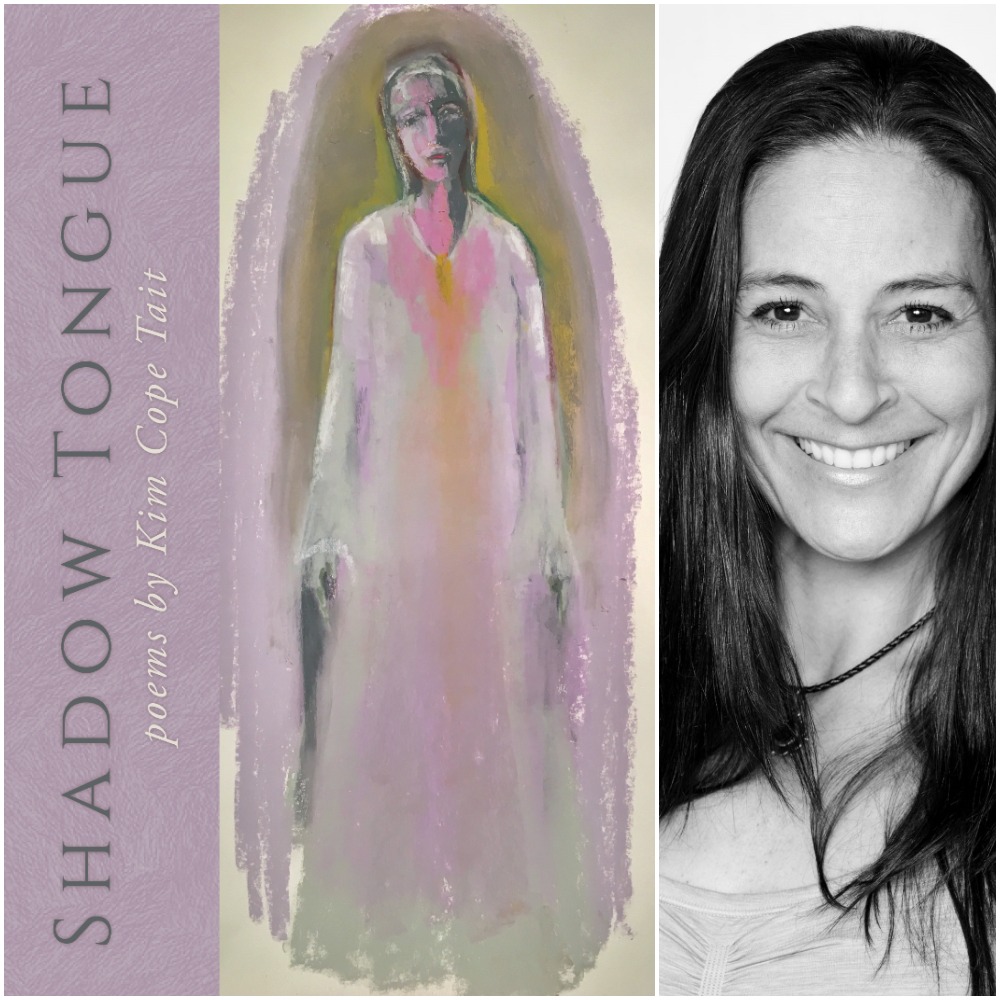Is it possible to live in a world of loss and continue to sing? Kim Cope Tait‘s beautiful Shadow Tongue teaches us that we can. In this book, pain and tenderness are in a complex dynamic with the wildness of rich poetic language and the composed rigors of poetic form. And what emerges from this complexity? In the poet’s words: “I am not more than I was before, but changed:/swelling with the grief that becomes my love/and is turned back again and again/to what aches, what saves.”
–David Ebenbach, author of We Were the People Who Moved and Miss Portland
This is what it is to be lit from within. Astral and oceanic, familial and solitary, of measured breath and breadth, these poems attest that in grief, too, there is a deeper plumbing of the now and a radiance to savor, that our experiences of peace and pain are undoubtedly a function of each other’s, a collective happening, and that the act of saying provides the basic physiospiritual infrastructure of knowing and being known, perhaps our greatest human needs. Even in a world-weary era where language is often co-opted, its target-end misinformation, subversion and deception, Kim Cope Tait‘s Shadow Tongue does not waver. Her aim is true.
–Bill Rasmovicz, author of Gross Ardor and Idiopaths.
“I have a soft spot for form, especially when it blends seamlessly into narrative and song. Kim Cope Tait‘s long-lined sonnets and beyond, are not afraid of the darkness. Throughout the collection the pleasure of form provides the background music to the appreciation of living. This book, a small gem, views life in all its ‘excellence.'”
–Joan Logghe, Santa Fe Poet Laureate 2010-12, author of The Singing Bowl (University of New Mexico Press)
“People think with their feelings, whereas I feel with my thoughts,” wrote Pessoa, and it is precisely such exactness of emotion, which is to say, the power of emotive thinking, that informs Kim Cope Tait‘s poems. Whether through sonnet, sestina, linked sonnets, organic forms, villanelle and others, and encompassing the family, both living and dead, close friends, native tribes, musicians, or a lost boy, and by extension all of us readers, these poems reach out “as we wake / to [their] arc of love’s flight and the precision of trusting what is light.” The observable world here ranges from flowers to constellations, relationships of love to losses that are always, through the power of the language here, redeemed. What lies behind this incredible voice is the dialectic understanding that “it is as likely / that nothing is sacred as that everything is.” And this book is a testament that everything is, or will be, after reading.
–Richard Jackson, author of Broken Horizons and Out of Place
Kim Cope Tait‘s poems keep moving in circles–water, trees, stars; children, mothers, elders; life, loss, persistent haunting. Throughout, it is love and love that keeps these worlds turning and spinning, raveling and unraveling. “Shadow Tongue” wanders the powerful poetic landscapes of Walt Whitman, Elizabeth Bishop and Maxine Kumin–asking us to stand in the maelstrom of who we came from, what they lived, and how these become the world we live in. In the end, despite grief and loss, the poet affirms “Yes, I Say, Yes” leaning heavily into one desire: beauty.
–Valerie Martínez, author of Each and Her and Absence, Luminescent






Reviews
There are no reviews yet.